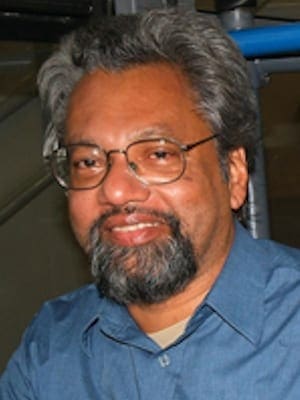Some readers have written to say that Camila Vallejo is a member of the Communist Party of Chile, as if this should make my admiration for her evaporate.
If we are to shun any involvement with communists, then we should also be boycotting all goods made in China and Vietnam and persuading our governments and business leaders to stop all trade with these countries, let alone investing heavily in them.
Joining communists to make money is OK. Joining them to protest against injustice is not. What hypocrisy!
And how paradoxical that the United States, which projects itself as the defender of liberty and human rights around the world, is so dependent economically on the communists that the relationship can even be described as one of ownership.
It can, of course, be argued – as the Slovenian communist philosopher Slavoj Zizek does – that today’s China is the ideal capitalist country in which the main task of the ruling Communist Party is to control the workers and prevent their self-organization and mobilization.
The party’s power is legitimized by its undercover deal with the new capitalists, which takes the form: “You stay out of politics, and we will keep the workers under control.”
Zizek claims in “Living in the End Times” that the ruling regime is so sensitive to any notion of workers’ self-organization that “even the official books dealing with the history of the Chinese Communist Party and workers’ movement in China silently pass over the subject of trade unions and other forms of workers’ resistance, even if they were supported or directly organized by the Communists, lest the evocation of this past give rise to dangerous association with the present.”
One of the myths about capitalism that was popular during the Cold War was that it was the handmaid of democracy. Economic freedom would usher in political freedom.
But, even in the history of Western nations, the truth was the very opposite. It was the spread of adult suffrage and the maturing of democracy that curbed the excesses of capitalism and protected men, women and children from the worst forms of exploitation.
God’s “upside-down kingdom,” which has dawned in Jesus Christ, will one day spell the “scattering of the proud … the bringing down of rulers from their thrones … the lifting up of the humble, the filling of the hungry with good things and the sending away of the rich empty-handed” (Luke 1:51-53).
The day of final transformation is when God’s redemptive presence will fill the earth (Isaiah 11:1-9; 65:17-25; Revelation 21:1-5).
The victory that Christ secures through his death and resurrection is given to those who are willing to become like little children (Matthew18:2), that is, nobodies; these are also the “poor in spirit” (Matthew 5:3), those who have relinquished the obsession with control and competitiveness.
The redemption that the gospel announces is thus contradicted by a global economy that persuades persons and nations to live beyond their means.
Responsible lending can help people escape from poverty, as in foreign direct investment and micro-credit schemes, provided the terms of the loan are fair and the interests of both debtor and creditor are safeguarded legally.
But in a debt-based global economy, lending by rich nations and financial institutions is often irresponsible.
Poor nations are pressured by the rich into selling their rights to their “commons” as partial repayment of national debts.
(Would this be a contemporary equivalent of the taking of a poor man’s millstone as security for a debt? See Deuteronomy 24:6.)
Moreover, many Two-Third World governments are run by incompetent and corrupt politicians who are willing to sell off their nation’s natural inheritance in exchange for massive armies and wasteful, grandiose “development projects.”
Thereby, whole generations live under the shadow of crippling debts, which require extraordinary and sustained levels of economic growth to offset.
The IMF and the World Bank are the favorite targets of left-wing critics of globalization.
But dependence on such institutions is more often the result of poor strategic planning and fiscal management, rather than a global conspiracy by the latter.
States that run up large foreign debts lose control over their macro-economic policy.
We are now so accustomed to governments running up billions of dollars in deficits every year that we take it as normal that governments owe hundreds of billions of dollars in debt to people outside the country.
But if you put yourself in massive debt to other people, you lose some control over your life.
On a personal level, we can stop using credit cards to buy things we cannot afford. Living beyond our means leads to enslavement and ecological disaster.
In this regard, the “99%” whom the “Occupying” movements claim to represent are not blameless – they have encouraged a system whose short-term benefits they have reaped while ignoring the real victims of globalization.
But, on a political level, church leaders, economists, businessmen, journalists, artists, lawyers and social activists need to come together with the poor to claim the rights of the marginalized and the vulnerable.
The recovery of democratic politics is central to any Christian attempt to “redeem” the global economy and the processes of globalization.
The lack of political will on the part of wealthy nations to reform global financial institutions and to reshape the global economy so that the benefits of globalization are more equitably distributed can only be countered by a transnational mobilization of grassroots movements from below.
Let Christians in rich nations learn from Occupying Wall Street and other social movements what following Christ entails.
Vinoth Ramachandra is secretary for dialogue and social engagement for the International Fellowship of Evangelical Students. He lives in Sri Lanka. A version of this column first appeared on his blog.
Secretary for dialogue and social engagement for the International Fellowship of Evangelical Students. He lives in Sri Lanka.

